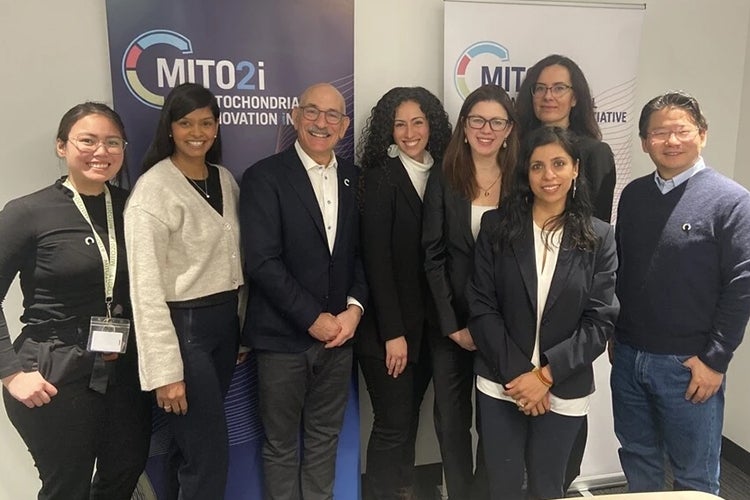
Mitochondria Transplant Set to Revolutionize Disease Care
Researchers at the University of Toronto and its hospital partners are developing a way to treat dysfunction in mitochondria – energy-producing structures within cells that play a critical role in cellular health and function – in a bid to treat a wide range of acute and chronic diseases.
Led by Ana Andreazza, a professor of pharmacology and toxicology in U of T’s Temerty Faculty of Medicine, the research team is delivering healthy mitochondria directly into damaged cells in an effort to offer patients hope for regeneration and recovery in an area where conventional medicine has fallen short.
“We believe mitochondrial transplantation will reshape the landscape of regenerative medicine,” says Andreazza, who is also the founder and scientific director of the Mitochondrial Innovation Initiative (MITO2i), a U of T institutional strategic initiative . “This isn’t about managing disease. It’s about restoring life at its most fundamental level – and ensuring that this breakthrough reaches everyone.”
The project, supported by a $23.8-million grant from the federal government’s New Frontiers in Research Fund, brings together an interdisciplinary team that is committed to transforming regenerative medicine through mitochondrial transplantation – an emerging field that could change how the world treats organ failure, chronic inflammation and degenerative diseases.
It’s one of six projects in Canada – and one of two at U of T – that received support through the fund’s 2024 transformation stream, which supports “large-scale, Canadian-led, interdisciplinary research projects that address major challenges and have the potential to realize real and lasting change.”
“I would like to congratulate Professor Andreazza and her team on securing this remarkable investment, which will accelerate the advancement of mitochondrial transplantation and could forever change the way we treat a wide array of diseases,” said Leah Cowen, U of T’s vice-president, research and innovation, and strategic initiatives.
“Combining fields ranging from pharmacology and public health to AI and materials engineering, this initiative exemplifies the importance of taking an interdisciplinary approach. It’s also a shining example of the collaborative spirit that binds researchers at U of T and our hospital partners.”
As part of the project, Andreazza and Frank Gu, a professor in the department of chemical engineering & applied chemistry in the Faculty of Applied Science & Engineering, will lead the advancement of novel mitochondrial transplantation techniques with the integration of artificial intelligence-driven delivery technologies and materials engineering to create scalable, clinically viable systems.
Milica Radisic, a senior scientist at University Health Network (UNH) and professor at U of T’s Institute of Biomedical Engineering, and Sowmya Viswanathan, a scientist at UHN and professor in U of T’s Temerty Faculty of Medicine, are charged with directing efforts to validate safety and efficacy through sophisticated organ-on-a-chip platforms and other preclinical models. Ori Rotstein of Unity Health Toronto and U of T’s department of surgery and Marcelo Cypel of UHN and the department of surgery, will oversee the translation of the therapy into clinical trials targeting multiple organ systems. Mikaela Gabriel of Unity Health and U of T’s Dalla Lana School of Public Health, along with community partners including MitoCanada, leads the development of Indigenous health integration and ethical, inclusive and scalable models for equitable patient care for diverse global populations.
The researchers say the potential implications of their work promise to extend well beyond the laboratory, with the potential to reshape several areas of medicine. This includes the possibility of significantly reducing inflammation and improving the quality of life for patients with both acute and chronic conditions. In the context of organ transplantation, the research could also dramatically extend the viability of donor organs, reduce rates of rejection and expand the transplant pool – offering hope to patients who previously had limited options.
The vision for the project arose by bringing together researchers with an interest in mitochondrial transplantation through a partnership between MITO2i and Medicine by Design , another U of T institutional strategic initiative, and support from key partners including Unity Health, UHN and the Ajmera Transplant Centre.
“This is a paradigm shift,” says Andreazza. “We are not just treating symptoms – we are restoring energy at the source, giving cells the ability to heal.”
https://www.utoronto.ca/news/mitochondria-transplantation-researchers-aim-revolutionize-treatment-disease


